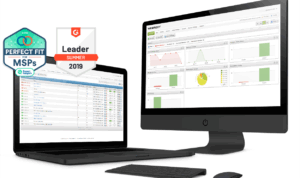Best contractor management software is revolutionizing the way businesses handle projects and collaborations. In today’s fast-paced environment, effective contractor management is crucial for maintaining productivity and ensuring project success. This software not only streamlines communication but also enhances accountability, allowing businesses to manage their contractors efficiently and effectively.
From tracking progress to managing invoicing, the right tools can transform the contractor experience, paving the way for smoother operations and better outcomes. As companies aim to optimize their workflows, integrating the best contractor management software becomes a strategic move that can lead to greater overall success.
In today’s fast-paced world, where technology and innovation are constantly reshaping our lives, the importance of staying informed and adaptable cannot be overstated. As we navigate through the challenges and opportunities that arise, it becomes crucial to understand key concepts and trends that can significantly impact our personal and professional lives. This article will delve into some of the most pressing issues of our time, exploring how they intertwine with our daily existence and what we can do to not only keep up but thrive in this dynamic environment.To start off, let’s discuss the phenomenon of digital transformation.
This term has gained substantial traction in recent years, and for good reason. Digital transformation refers to the integration of digital technology into all aspects of an organization, fundamentally changing how it operates and delivers value to its customers. This shift is not just about technology; it encompasses changes in culture, processes, and even the products and services offered. Companies that embrace digital transformation can enhance their efficiency, improve customer experience, and ultimately drive growth.For individuals, the implications of digital transformation extend beyond the workplace.
As we interact more with digital platforms, it is essential to develop digital literacy skills. This includes understanding how to navigate different technologies, being able to discern credible information from misinformation, and utilizing digital tools to enhance productivity. In essence, the workforce of the future will demand that we are not only tech-savvy but also critical thinkers who can adapt to new digital landscapes.Next, let’s shift our focus to sustainability, a topic that has gained immense attention in recent years.

The climate crisis is no longer a distant threat; it is a pressing reality that affects us all. From the wildfires in Australia to the rising sea levels threatening coastal cities, the consequences of climate change are becoming increasingly evident. As individuals and organizations, we have a responsibility to adopt sustainable practices that contribute to a healthier planet.Sustainability is not just about environmental conservation; it encompasses social and economic dimensions as well.
For instance, businesses are increasingly being held accountable for their practices, from sourcing materials ethically to treating their employees fairly. Consumers are more informed and are demanding transparency, pushing companies to adopt sustainable practices. This shift towards sustainability presents an opportunity for innovation, as businesses that can find ways to be both profitable and environmentally responsible will likely thrive in the coming years.Another critical area to explore is mental health awareness.
As society becomes more aware of mental health issues, the stigma surrounding them is slowly dissipating. However, there is still much work to be done. Mental health is just as important as physical health, and the two are often intertwined. The pressures of modern life, coupled with the impacts of social media, have led to increased rates of anxiety, depression, and other mental health issues.Promoting mental health awareness involves creating supportive environments where individuals feel safe to discuss their struggles and seek help.
This can be achieved through education, open conversations, and providing access to mental health resources. Employers, in particular, play a vital role in this, as they can foster a culture of mental wellness by offering support programs and promoting work-life balance.As we discuss these critical issues, it becomes apparent that they are all interconnected. Digital transformation, sustainability, and mental health awareness are not isolated topics; they all play a role in shaping our future.
For instance, the shift towards sustainable practices can be enhanced by leveraging technology, such as using data analytics to optimize resource usage. Similarly, digital platforms can be instrumental in promoting mental health awareness and connecting individuals with the resources they need.In navigating these challenges, it is essential to cultivate resilience. Resilience is the ability to bounce back from setbacks and adapt to change.
In a world that is constantly evolving, being resilient allows us to face adversity with confidence. This can be developed through various means, such as fostering strong relationships, maintaining a positive attitude, and setting realistic goals. Additionally, practicing self-care and mindfulness can significantly contribute to our overall well-being and resilience.Furthermore, education plays a pivotal role in equipping individuals with the necessary skills to navigate the complexities of the modern world.
Continuous learning should be embraced, as it allows us to adapt to new developments and remain competitive. Whether through formal education or self-directed study, the pursuit of knowledge is a lifelong journey that can yield significant benefits both personally and professionally.As we look to the future, it is essential to remain optimistic. While the challenges we face may seem daunting, they also present opportunities for growth and innovation.
By embracing change and remaining adaptable, we can not only navigate the complexities of our world but also contribute to a brighter future for ourselves and generations to come.In conclusion, the interplay between digital transformation, sustainability, mental health awareness, and resilience underscores the importance of adaptability in our rapidly changing world. By staying informed and proactive, we can equip ourselves with the tools needed to thrive amidst the challenges of the modern era.
Remember that each small step towards embracing these principles can lead to significant positive change, both for ourselves and for the greater community. So, let’s embrace the future with open arms, ready to tackle whatever comes our way!
Questions and Answers
What features should I look for in contractor management software?

Look for features like project tracking, invoicing, communication tools, document management, and user-friendly interfaces.
Is contractor management software suitable for small businesses?
Yes, many contractor management software solutions are designed with scalability in mind, making them perfect for small businesses.
How can contractor management software save time?

It automates various tasks, streamlining processes such as invoicing and communication, which reduces manual work and saves time.
Can contractor management software help with compliance?
Yes, many solutions include compliance tracking features, ensuring that all contractors meet necessary regulations and standards.
What is the cost of contractor management software?
Costs vary widely depending on features and the number of users, but there are options available for every budget.










